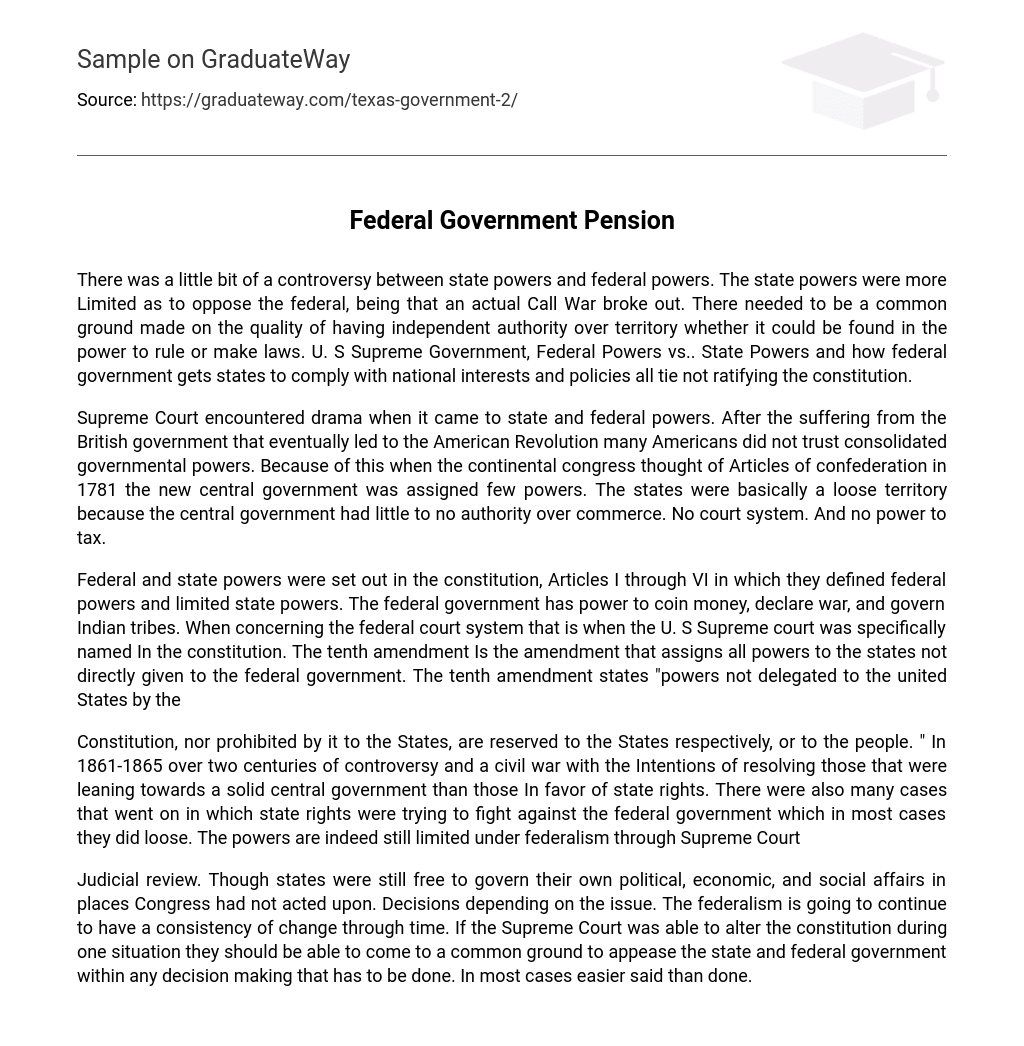There was a little bit of a controversy between state powers and federal powers. The state powers were more Limited as to oppose the federal, being that an actual Call War broke out. There needed to be a common ground made on the quality of having independent authority over territory whether it could be found in the power to rule or make laws. U. S Supreme Government, Federal Powers vs.. State Powers and how federal government gets states to comply with national interests and policies all tie not ratifying the constitution.
Supreme Court encountered drama when it came to state and federal powers. After the suffering from the British government that eventually led to the American Revolution many Americans did not trust consolidated governmental powers. Because of this when the continental congress thought of Articles of confederation in 1781 the new central government was assigned few powers. The states were basically a loose territory because the central government had little to no authority over commerce. No court system. And no power to tax.
Federal and state powers were set out in the constitution, Articles I through VI in which they defined federal powers and limited state powers. The federal government has power to coin money, declare war, and govern Indian tribes. When concerning the federal court system that is when the U. S Supreme court was specifically named In the constitution. The tenth amendment Is the amendment that assigns all powers to the states not directly given to the federal government. The tenth amendment states “powers not delegated to the united States by the
Constitution, nor prohibited by it to the States, are reserved to the States respectively, or to the people. ” In 1861-1865 over two centuries of controversy and a civil war with the Intentions of resolving those that were leaning towards a solid central government than those In favor of state rights. There were also many cases that went on in which state rights were trying to fight against the federal government which in most cases they did loose. The powers are indeed still limited under federalism through Supreme Court
Judicial review. Though states were still free to govern their own political, economic, and social affairs in places Congress had not acted upon. Decisions depending on the issue. The federalism is going to continue to have a consistency of change through time. If the Supreme Court was able to alter the constitution during one situation they should be able to come to a common ground to appease the state and federal government within any decision making that has to be done. In most cases easier said than done.





